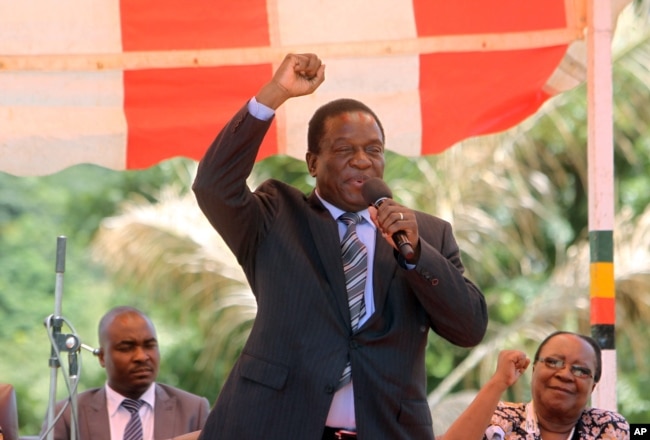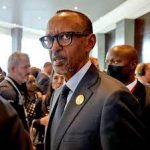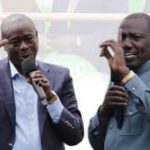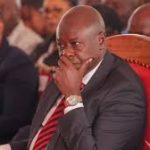Mugabe Faces Impeachment After Refusing to Resign
Zimbabwe’s longtime president Robert Mugabe is facing impeachment after making it clear in a televised speech he will not resign.
Millions tuned in to radio and television Sunday expecting to celebrate the end of what has been 37 years of Mugabe’s autocratic rule.
They were bitterly disappointed – some to the point of tears – to hear Mugabe say he will preside over his ZANU-PF party congress next month.
He did not mention the word resign or appear to take the military intervention into the country’s political crisis seriously.
“The operation…did not amount to a threat to our well-cherished constitutional order nor did it challenge my authority as head of state, not even as commander-in-chief,” he said.
His ruling party has given him until noon local time Monday to give up power or face impeachment.
It also fired Mugabe as ZANU-PF chief – a party he co-founded – and put ousted vice-president Emmerson Mnangagwa as the new party leader.
‘Not in line with what we expected’
Party whip Lovemore Matuke tells the Associated Press impeachment proceedings are a certainty and called Mugabe’s speech “surprising.”
“It is not in line with what we expected. We had understood that his resignation was coming to avoid the embarrassment of impeachment. The army is taking its own route, as politicians we are taking our own route, but the ultimate goal is to make sure he goes, which he should have done tonight,” Mutake said.
The freedom fighters who fought alongside Mugabe in the liberation struggle have called for protests and are demanding that Mugabe relinquish his stranglehold on the presidency.
“That speech has nothing to do with realities,” Chris Mutsvangwa, head of the influential war veterans’ association, told AFP news agency. “We will go for impeachment and we are calling people back to the streets.”
Mutsvangwa said he would like to see the military back off to let people and politics take care of Mugabe’s removal from office. Mutsvangwa said the military is bound to protect Mugabe, even though they placed him under house arrest, because the president officially remains their commander-in-chief.
The war veterans’ association is going to court, Mutsvangwa said, to argue that Mugabe is derelict of his executive duty.”
Shaderick Guto, a professor emeritus of the University of South Africa, told VOA that Mugabe is “trying to play games” because he knows the army fears being ostracized by the Southern African Development Community (SADC) and the African Union if it stages a coup. Neither organization condones the unconstitutional removal of an elected government.
Mugabe has been under house arrest since last week while negotiations are under way for his departure.
Zimbabwe has been in serious economic and political turmoil since the late 1990s.
Turning point
But the turning point in the current crisis came when Mugabe fired the popular military hero Mnangagwa and named his own hugely unpopular wife Grace as his successor.
Grace Mugabe has been accused of leading a life of luxury while many Zimbabweans go hungry.
Saying his wife would take power prompted the military to step in and carry out a de facto coup, taking over many state institutions and placing Mugabe under house arrest.
The 93-year-old Mugabe is the world’s oldest head of state. He took power, first as prime minister then as president, in 1980 when Zimbabwe won independence from British white minority rule.
Although he initially brought some benefits to the black majority and the poor, Mugabe’s authoritarian rule is seen as having destroyed Zimbabwe’s economy, discouraged foreign investment and stifled any political challenges through violence, intimidation and what the opposition says have been rigged elections.
Mugabe has made no secret of his desire to run for re-election next year.



























